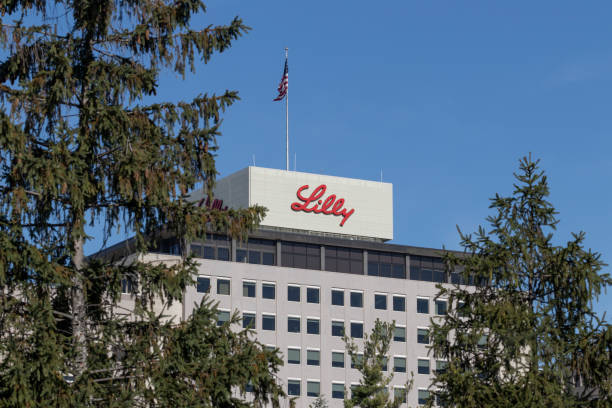Drug companies are racing to create new GLP-1 medications following the massive success of Ozempic and Wegovy (Novo Nordisk) and Mounjaro and Zepbound (Eli Lilly).

Some of the new drugs might offer more than just diabetes and weight loss benefits – they could improve liver and heart function too, among others. At the 2024 American Diabetes Association conference in Orlando, Florida, held last June 13, 2024 researchers presented data on 27 GLP-1 drugs being developed.
Much of the data comes from animal studies or early-stage human trials. However, some presentations included mid-to late-stage trials.
Most of these drugs are still years away from being approved by the FDA. But some could be available for prescription in the U.S. within the next few years.
More GLP-1 Drugs in the Pipeline
Eli Lilly, which makes Zepbound and the diabetes version Mounjaro, has two more GLP-1 drugs in development. Lilly released new data about retatrutide, an injectable drug that combines GLP-1 and glucagon, plus GIP, a hormone believed to improve how the body breaks down sugar.
In an earlier trial, retatrutide helped people lose, on average, about 24% of their body weight or the equivalent of about 58 pounds — this is a greater weight loss than any other drug on the market.
New findings showed the weekly medication also significantly reduced blood sugar levels in people with Type 2 diabetes.

There are also new findings on the experimental mazdutide, which Lilly has given permission to biotech firm Innovent Biologics to develop in China. In a phase 3 study of adults in China who were overweight or had obesity, researchers found that after 48 weeks, a 6-milligram dose of the drug led to an average 14.4% body weight reduction.
The drug also triggered lower serum uric acid – a chemical that builds up in the bloodstream and cause some health issues. The drug could be approved in China in 2025.
An estimated 75% of people with obesity have nonalcoholic fatty liver disease and 34% have MASH, or metabolic dysfunction-associated steatohepatitis, according to researchers with the German drugmaker Boehringer Ingelheim. Fatty liver disease occurs when the body begins to store fat in the liver and it can progress to MASH, which is an inflammation and scarring in the liver.
In a phase 2 trial of people who were overweight or had obesity, survodutide (contains both GLP-1 and glucagon) led to an average weight loss of 19% after 46 weeks. Another phase 2 study in people with fibrosis and MASH also found that a majority of participants (83%) also showed improvement in MASH.
Survodutide “has significant potential to make a meaningful difference to people living with cardiovascular, renal and metabolic conditions,” said Dr. Waheed Jamal, Boehringer Ingelheim’s corporate vice president and head of cardiometabolic medicine. The company has already commenced Phase III trial.
Pfizer’s Progress on Once-Daily Oral GLP-1 RA Danuglipron
Pfizer Inc. recently announced exciting progress in the development of their once-daily formulation of danuglipron, which is an oral form of GLP-1 receptor agonist. In the second half of 2024, Pfizer plans to conduct dose optimization studies to evaluate various doses of this formulation.

The current randomized study (comprised of 14,000 participants) is looking at the safety and pharmacokinetics of both immediate- and modified release formulations in healthy adults who are at least 18 years old. So far, the results support once-daily dosing with a safety profile consistent with previous danuglipron studies, and no liver enzyme elevations have been seen.
New Study Shows GLP-1 Drugs Lower Cancer Risk
A new study published in the Journal of the American Medical Association has found that GLP-1 drugs may lower the risk of certain cancers. The study analyzed the medical records of 1.6 million people over 13 years old diagnosed with type 2 diabetes. It discovered that patients taking GLP-1 drugs were less likely to develop some obesity related cancers.
Overweight or obese people are at higher risk for 13 types of cancer, and this risk increases with more weight gain and longer duration of being overweight. According to the U.S. Centers for Disease Control, about 40% of new cancer diagnoses are linked to excess weight.
The study found that people with type 2 diabetes on GLP-1 drugs were significantly less likely to be diagnosed with 10 types of cancer compared to those taking insulin. These cancers include esophageal, colorectal, gallbladder, pancreatic, ovarian, endometrial, kidney and liver cancers, along with multiple myeloma and meningioma. The risk was reduced by 24% – 65%. Surprisingly, the treatment did not lower the risk for postmenopausal breast cancer, which is most associated with obesity.
Expanding Uses for GLP-1 Medications
The market for GLP-1 medications is growing, and researchers in the medical field are discovering new therapies in development. The currently approved GLP-1 drugs for type 2 diabetes and obesity include:
- Tirzepatide: Mounjaro, Zepbound
- Semaglutide: Ozempic, Wegovy, Rybelsus
- Liraglutide: Victoza, Saxenda
- Exenatide: Byetta, Bydureon
- Dulaglutide: Trulicity
The potential of GLP-1 therapies goes beyond weight management. In fact, recent trials and off-label uses suggest benefits in:
Alzheimer’s
Parkinson’s
Dementia
Chronic kidney disease
Cardiovascular diseases
Polycystic ovary syndrome
Gastroparesis
Alcohol use disorder
Sleep apnea
These findings open new possibilities for GLP-1 treatments and highlight the need for continued research to explore these benefits further.
Competition Could Lower Costs
While current drugs are effective, there is a need for new drugs that are more affordable and have fewer side effects. Expanding the number of weight loss drugs available is important for several reasons. More options could also help alleviate the shortages seen in the U.S. with Novo Nordisk’s and Lilly’s weight loss drugs.
Increased competition could drive down the high cost of these drugs over time. A month’s supply of Wegovy or Zepbound cost over $1,000, which is prohibitive for many patients.